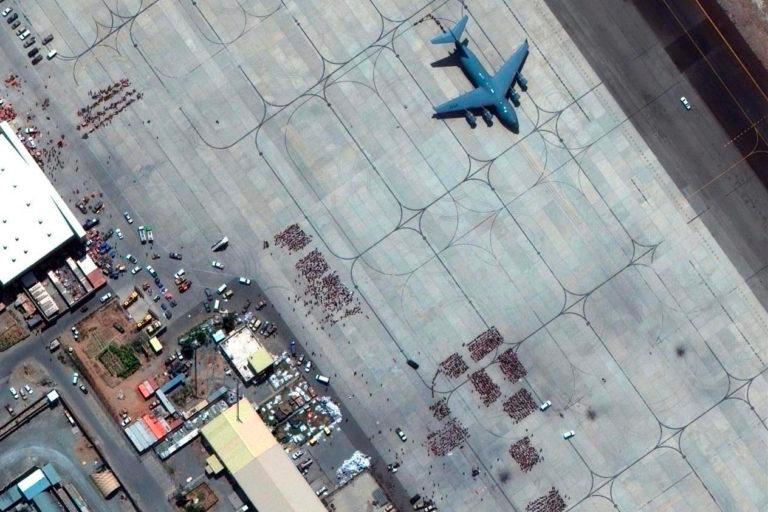OTTAWA—Prime Minister Justin Trudeau was playing his cards close to his chest on whether he wants the G7 to push for an extension of the American military commitment to Afghanistan.
Trudeau joined a special virtual meeting of the G7 leaders Tuesday on the crisis in Afghanistan and President Joe Biden is expected to face calls from some fellow leaders to extend the U.S. military commitment to the country beyond his Aug. 31 deadline.





